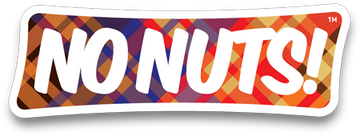La base de datos de alérgenos alimentarios: su guía de seguridad
Feb 10, 2025
Las alergias alimentarias afectan a muchas personas en todo el mundo, por lo que es importante estar bien informado sobre ellas. La Base de Datos de Alérgenos Alimentarios es una herramienta útil que proporciona información detallada sobre los alérgenos alimentarios, cómo funcionan y qué alimentos pueden causar reacciones. Esta base de datos ayuda a personas con alergias, médicos y empresas alimentarias a comprender mejor las alergias alimentarias y a mantenerse seguros. Conozcamos más sobre este útil recurso y cómo puede ayudarle a usted y a los demás a mantenerse sanos al lidiar con las alergias alimentarias.
Conclusiones clave
| Aspecto | Detalles |
|---|---|
| Objetivo | Repositorio centralizado de información sobre alérgenos alimentarios |
| Usuarios | Personas con alergias, cuidadores, profesionales sanitarios, industria alimentaria. |
| Características principales | Perfiles de alérgenos completos, interfaz de búsqueda, actualizaciones periódicas |
| Alérgenos principales | Cubre los 9 alérgenos principales reconocidos por la FDA |
| Beneficios | Mejora la seguridad, apoya la toma de decisiones informada y ayuda en el desarrollo de productos. |
¿Qué es la base de datos de alérgenos alimentarios?
La Base de Datos de Alérgenos Alimentarios es una extensa colección de información sobre alérgenos alimentarios. Indica qué son los alérgenos, cómo actúan en el organismo y qué alimentos pueden causar reacciones alérgicas. Esta base de datos se actualiza constantemente con la información más reciente de los científicos. Es muy útil para:
- Personas con alergias alimentarias que quieran saber más sobre a qué son alérgicos.
- Padres y cuidadores que cuidan de niños u otras personas con alergias.
- Médicos que ayudan a pacientes con alergias alimentarias.
- Empresas de alimentos que necesitan asegurarse de que sus productos sean seguros para las personas con alergias.
- Científicos que estudian las alergias y tratan de encontrar nuevas formas de ayudar a las personas que las padecen.
Características principales de la base de datos de alérgenos alimentarios
La base de datos de alérgenos alimentarios tiene algunas características interesantes que la hacen fácil de usar y realmente útil:
- Perfiles detallados de alérgenos: proporciona mucha información sobre cada alérgeno, como de qué están hechos y cómo pueden reaccionar con otros alimentos.
- Fácil de buscar: puede encontrar rápidamente información sobre alérgenos, alimentos o síntomas de alergia específicos.
- Siempre actualizado: la base de datos se actualiza constantemente con nuevas investigaciones e información sobre los alérgenos.
- Muestra conexiones: le ayuda a comprender cómo pueden estar relacionados los diferentes alérgenos, lo cual es importante si tiene más de una alergia.
Principales alérgenos alimentarios cubiertos
La Base de Datos de Alérgenos Alimentarios se centra en nueve alérgenos alimentarios principales que la Administración de Alimentos y Medicamentos de los Estados Unidos (FDA) considera los más importantes. Estos alérgenos causan las reacciones alérgicas más graves y deben estar claramente etiquetados en los envases de los alimentos. La base de datos ofrece amplia información sobre cada uno de estos alérgenos, incluyendo dónde se encuentran comúnmente y qué alimentos podrían contenerlos sin que usted se dé cuenta.
- Leche: Esto incluye todos los productos lácteos y se puede encontrar en lugares sorprendentes como fiambres.
- Huevos: Tanto la clara como la yema pueden provocar alergias, y los huevos se utilizan a menudo en alimentos procesados.
- Pescado: Diferentes tipos de pescado pueden provocar distintas reacciones alérgicas.
- Mariscos crustáceos: Incluye camarones, cangrejos y langostas, e incluso algunas salsas.
- Frutos secos: las almendras, las nueces y los anacardos son ejemplos, y cada uno puede provocar reacciones diferentes.
- Cacahuetes: En realidad son legumbres, no frutos secos, y son un alérgeno muy común.
- Trigo: Se encuentra en muchos alimentos, incluidos algunos que quizás no esperes.
- Soja: A menudo se utiliza en alimentos procesados y puede estar oculta en cosas como el aceite vegetal.
- Sésamo: Este alimento se agregó recientemente a la lista, ya que cada vez se lo reconoce más como alérgeno.
Para cada uno de estos alérgenos, la base de datos indica su frecuencia, dónde encontrarlos y los ingredientes a tener en cuenta. Esta información es fundamental para las personas con alergias alimentarias y para las empresas alimentarias, que se aseguran de que sus etiquetas sean correctas. La base de datos también incluye información sobre alérgenos menos comunes y otros nuevos que los científicos están descubriendo.
Uso de la base de datos de alérgenos alimentarios para la seguridad
La Base de Datos de Alérgenos Alimentarios es una herramienta excelente para mantenerse seguro y tomar decisiones inteligentes sobre los alimentos. Diferentes grupos de personas pueden usarla de distintas maneras para contribuir a la seguridad alimentaria:
Para personas con alergias alimentarias:
- Descubra qué alimentos pueden contener alérgenos consultando las listas de ingredientes.
- Aprenda sobre los alimentos que pueden causar reacciones porque son similares a su alérgeno.
- Descubra nuevos alimentos que son seguros para comer, lo que le brinda más opciones
- Manténgase actualizado sobre los nuevos descubrimientos sobre las alergias y cómo controlarlas.
Para empresas de alimentos:
- Asegúrese de que las etiquetas de los alimentos enumeren correctamente todos los alérgenos.
- Crear planes para mantener los alérgenos bajo control en sus fábricas
- Descubra cómo evitar que los alérgenos entren accidentalmente en otros alimentos.
- Crear nuevos productos que sean seguros para personas con alergias.
Al usar la Base de Datos de Alérgenos Alimentarios, las empresas pueden crear productos más seguros para las personas con alergias. Por ejemplo, 88 Acres produce mantequilla de semillas de calabaza sin ningún alérgeno importante, ideal para personas con múltiples alergias alimentarias. Esta información detallada ayuda a las empresas a crear alimentos nuevos y seguros para las personas con alergias.
Producto destacado sin alérgenos
La Base de Datos de Alérgenos Alimentarios no solo informa sobre los alérgenos, sino que también ayuda a encontrar alternativas seguras. Esto ha impulsado la creación de nuevos productos sin alérgenos para diferentes dietas. Veamos algunos productos sin alérgenos que muestran cómo las empresas utilizan la información sobre alérgenos para crear opciones seguras y sabrosas:
1. 88 acres de mantequilla de semillas de calabaza
Esta mantequilla de semillas de calabaza de 88 Acres es ideal para personas con alergias múltiples. No contiene cacahuetes, frutos secos ni otros alérgenos importantes. Aquí te contamos sus características especiales:
- Libre de cacahuetes y frutos secos, que son alérgenos comunes.
- Fabricado en una fábrica especial que no utiliza ningún alérgeno.
- Sin azúcar añadido, bueno para personas que cuidan su consumo de azúcar.
- Lleno de grasas saludables y nutrientes.
- Se puede utilizar de muchas maneras, como para cocinar, hornear o para untar.
2. Mantequilla de almendras Barney Butter
La mantequilla de almendras de Barney Butter es otra buena opción para quienes buscan untables hipoalergénicos. Contiene frutos secos (almendras), pero no contiene otros alérgenos importantes:
- Certificado sin gluten, seguro para personas celíacas.
- Elaborado con ingredientes no transgénicos
- Certificado Kosher
- Suave y cremoso, similar a la mantequilla de maní.
- Alto contenido en vitamina E y grasas saludables.
- Viene en diferentes sabores.
El futuro de la gestión de alérgenos
A medida que más personas desarrollan alergias alimentarias, contar con buenas bases de datos de alérgenos cobra aún más importancia. En el futuro, probablemente veremos nuevas tecnologías e investigaciones que facilitarán aún más la protección y la ayuda a las personas con alergias alimentarias. Algunos de los resultados que podríamos observar:
Crecimiento proyectado en la investigación sobre alérgenos alimentarios
- Uso de programas informáticos inteligentes para predecir nuevos alérgenos o conexiones entre alérgenos
- Incluyendo más información sobre alergias raras
- Envío de actualizaciones rápidas a los teléfonos de las personas sobre retiradas o advertencias de alérgenos
- Creación de perfiles de alérgenos personales para cada usuario, en función de sus alergias y condiciones de salud específicas.
- Mejores formas de detectar y tratar las alergias
- Herramientas de cocina inteligentes que pueden detectar alérgenos en los alimentos.
Estas nuevas ideas harán que la Base de Datos de Alérgenos Alimentarios sea aún más útil para el manejo de alergias y la seguridad alimentaria. A medida que la tecnología mejore, probablemente veremos maneras más sencillas de usar y comprender la información sobre alérgenos.
Conclusión: Vivir con seguridad con alergias alimentarias
La Base de Datos de Alérgenos Alimentarios es una herramienta fundamental que ayuda a las personas con alergias, a los médicos y a las empresas alimentarias a comprender mejor las alergias alimentarias. Al proporcionar información precisa y actualizada, contribuye a crear un entorno alimentario más seguro para todos, desde personas con alergias graves hasta quienes presentan sensibilidades alimentarias leves.
Ya sea que tenga una alergia alimentaria, cuide de alguien que la tenga o trabaje con alimentos, la Base de Datos de Alérgenos Alimentarios es sumamente útil. Ayuda a las personas a tomar decisiones inteligentes, crear nuevos productos y vivir mejor, incluso con alergias alimentarias. La base de datos abarca muchos aspectos del manejo de las alergias, desde la prevención de reacciones hasta saber qué hacer en caso de emergencia.
Recuerde que, si bien la base de datos es muy útil, siempre es importante consultar con un médico sobre sus alergias alimentarias específicas. Las alergias pueden ser complejas y diferentes para cada persona, por lo que buscar consejo profesional es fundamental para su seguridad.
Manténgase informado, seguro y disfrute de todos los deliciosos alimentos sin alérgenos que existen. La Base de Datos de Alérgenos Alimentarios le ayuda a tomar mejores decisiones alimentarias y a controlar sus alergias con mayor confianza. A medida que aprendamos más sobre las alergias alimentarias, este recurso será aún más valioso para ayudar a todos a disfrutar de comidas seguras e inclusivas.
Para más información sobre productos y recursos sin alérgenos, consulta nuestra selección de barras y snacks nutricionales aptos para diferentes dietas. Tu camino hacia una vida sin alérgenos empieza aquí, con el respaldo de toda la información de la Base de Datos de Alérgenos Alimentarios y los nuevos productos innovadores diseñados pensando en tu seguridad.






